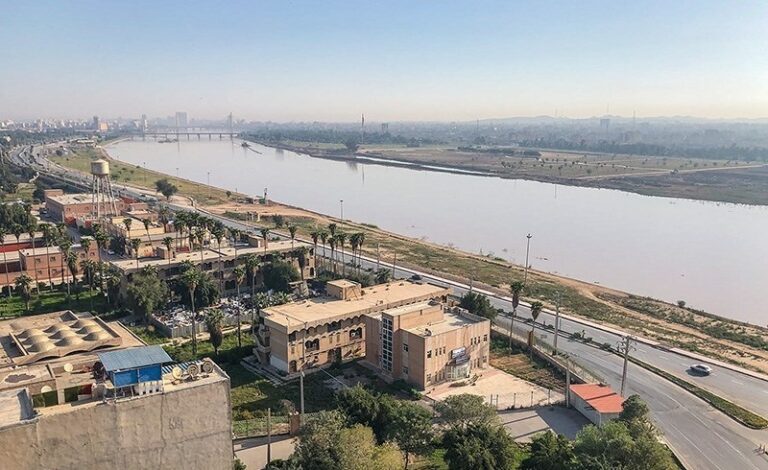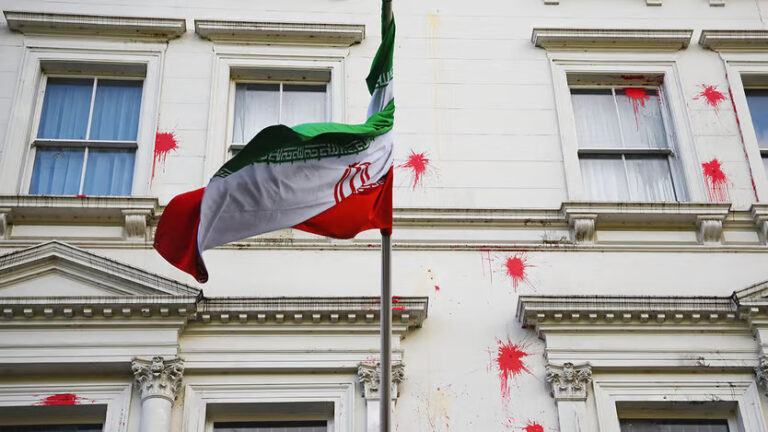A power struggle between Iran’s top leaders could shake the Islamic Republic to its foundations, with no sign
that its president can regain the trust of conservative politicians and clerics, analysts say. The ruling conservatives have increased the pressure on President Mahmoud Ahmadinejad to “obey” the Islamic republic’s supreme leader Ayatollah Ali Khamenei, saying his latest pledges did not go far enough. “The president said he would dishearten the enemies of the regime (in accepting Mr. Khamenei’s authority) but that is not enough. We are waiting for him to act on his words,” said influential religious authority Hojatoleslam Kazem Sediqi, widely quoted in Sunday papers, according to Agence-France Presse.
President Ahmadinejad told a cabinet meeting on May 1 that he would obey Mr. Khamenei like “a son would his father,” in an attempt to draw a line on the stand-off between the two leaders.
The 55-year-old president had boycotted in April 2011 all public duties for eight days after Mr. Khamenei vetoed his sacking of Intelligence Minister Heydar Moslehi, an ally of the supreme leader.
But later on Sunday, he reiterated his allegiance to the Velayat-e Faqih system of supreme leader in Iran.
“The government with strength in word and action will continue to defend Velayat-e Faqih,” Mr. Ahmadinejad said at a cabinet meeting on Sunday, quoted on state television’s website.
Some parliamentarians argued that Mr. Ahmadinejad’s allies wanted to control the intelligence ministry to secure a majority in the 2012 parliamentary elections, since the intelligence ministry is in charge of checking backgrounds of potential candidates. The parliament, known as the Majlis (Islamic Consultative Assembly) has 290 members.
The clash over control of the intelligence ministry triggered a conservative backlash against the president that shows little sign of abating.
Presidential prayer leader Hojatoleslam Abbas Amirifar, an ally of President Ahmadinejad, was arrested May 1 for his murky role in the distribution of a DVD announcing the imminent return of the hidden imam, whom Shiite Muslims believe to be the ultimate savior of humankind who will bring justice to the world.
A court also initiated the arrest of a “sorcerer” who was allegedly linked to Esfandiyar Rahim Mashaie, Mr. Ahmadinejad’s chief of staff, according to AFP.
“Certain people within the regime have forgotten the values of the revolution and seek to misrepresent Islam … but the people do not follow demons or jinns, and will not tolerate such deviance,” warned General Mohammad Ali Jafari, head of the Revolutionary Guards, who reports directly to the supreme leader.
But Mr. Ahmadinejad on Sunday played down the row.
“The country can only be built with wisdom and sacrifice. For this, we believe those who these days speak of the influence of fortune-tellers and jinns in the performance of the government are only making jokes,” he said.
Mr. Mashaie has long been a thorn in the side of the religious ultra-conservatives, who say he is too nationalistic, too liberal and wields too much influence over the president.
Regime hardliners also accuse him of “deviating” from the revolution and have petitioned the president several times to get rid of him, so far to no avail.
For the last week, religious conservatives have been issuing daily reminders of the president’s duty of obedience to the supreme leader.
“To obey and submit to the supreme leader is a religious duty that has nothing to do with politics,” said Ayatollah Mohammed Taghi Mesbah Yazdi, Mr. Ahmadinejad’s former mentor, adding that the president’s “legitimacy is based upon the approval of the supreme leader and not the popular vote.”
Hojatoleslam Mojtaba Zolnour, Mr. Khamenei’s deputy representative to the Revolutionary Guards, echoed the message: “Neither the president nor anyone has any legitimacy without the order of the supreme leader,” he said, asking Mr. Ahmadinejad to “correct” his position, according to AFP.
The conservative parliament, dominated by hardliners, has opposed the government frequently in recent months.
It has also upped the pressure on Ahmadinejad, launching a petition demanding that he come before parliament to explain his behavior, Mehr news agency reported, adding it had already garnered 90 of the 175 signatures required.
Analysts say the outcome of Iran’s power struggle is uncertain but that it could have been kindled in part by concerns over any spillover effect of popular uprisings against dictatorial leaders in the Arab world.
“Supreme leader Khamenei feels compelled to confront Ahmadinejad to preserve his own authority and the system,” said Hamid Farahvashi, an analyst, according to Reuters. “Mr. Khamenei might want to use Ahmadinejad as a scapegoat if the regional popular crisis spreads into Iran.”
Iran’s leaders maintain that the Arab world revolts have been inspired by its 1979 Islamic Revolution, although analysts abroad say the unrest has been generally secular, not religious.
“The Islamic Republic cannot survive without the existence of the Supreme Leader,” the Sharq newspaper quoted Mohammed Ali Jafari, Guards commander-in-chief, as saying.
“Supreme leader Khamenei is Iran’s most powerful spiritual, political and military leader … Without his backing President Ahmadinejad will become a very weak president even if he stays in office,”Mohsen Sedaghati, an analyst, told Reuters.
(Abeer Tayel of Al Arbiya can be reached at: abeer.tayel@mbc.net)











+ There are no comments
Add yours